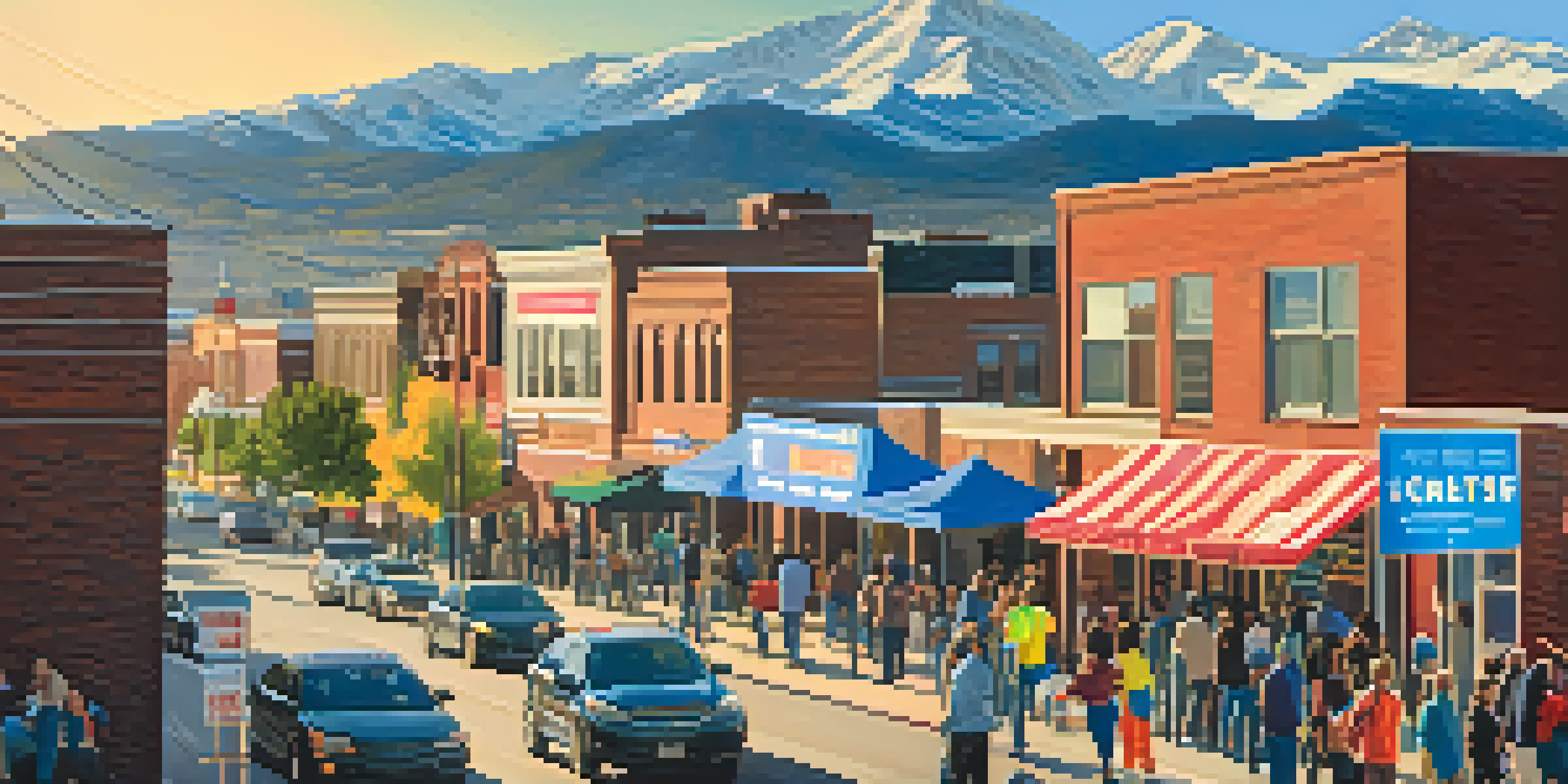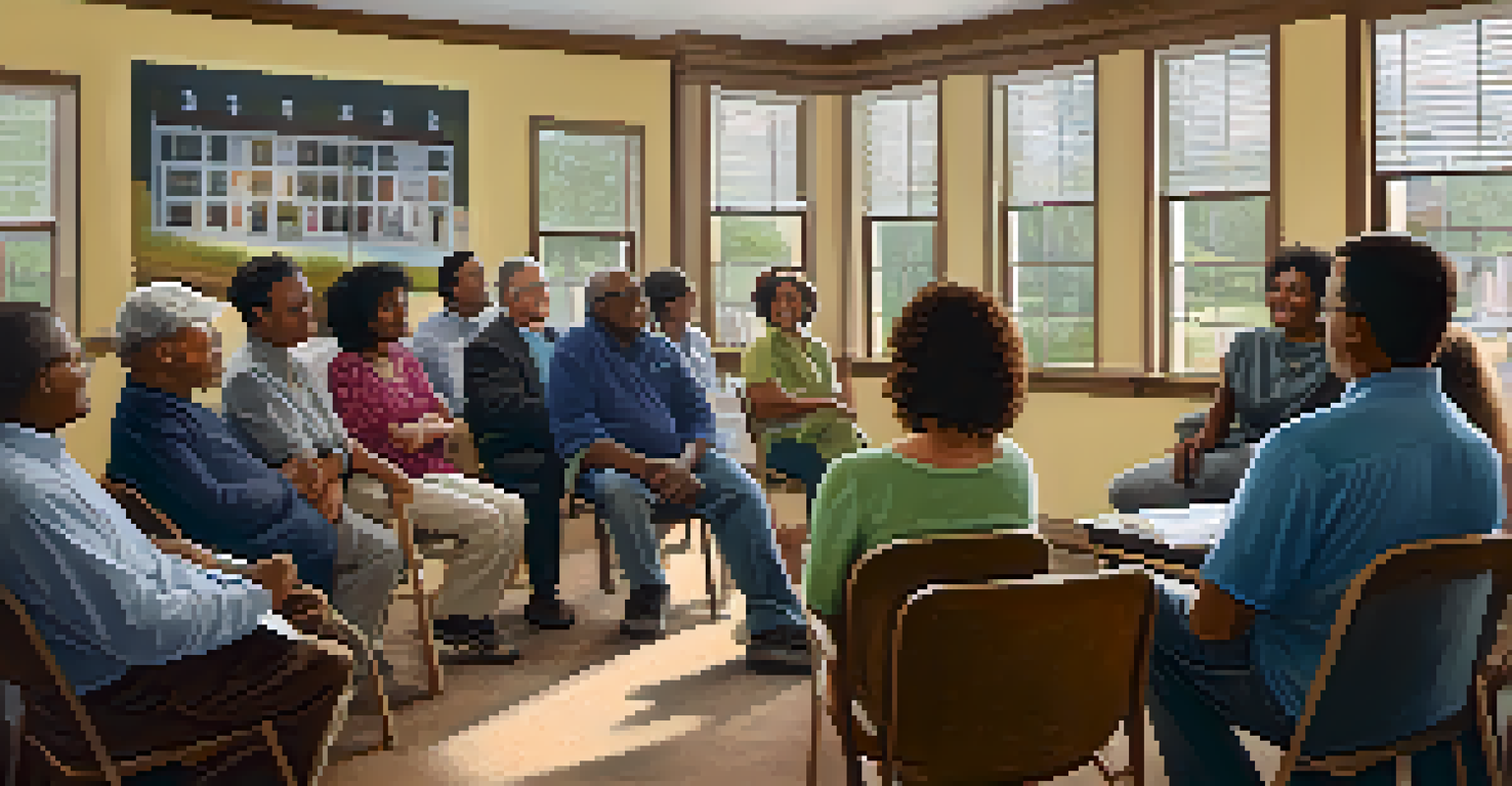Local Elections in Denver: Structure and Importance for Residents

What Are Local Elections in Denver?
Local elections in Denver are critical events that determine who will lead various city departments and influence local policies. They typically occur every two years, coinciding with the general election cycle. These elections cover positions like the Mayor, City Council members, and other key roles that directly affect the community's daily life.
Elections are the foundation of our democracy, and local elections are where citizens can truly make their voices heard.
Understanding local elections is essential because they shape everything from education policies to public safety and transportation. For instance, decisions made by the City Council can impact neighborhood safety measures or funding for parks and recreation. Thus, these elections are not just about choosing representatives; they’re about deciding the future of the community.
Moreover, local elections often see lower voter turnout compared to national elections, which means every vote carries more weight. Engaging in these elections gives residents a voice in issues that matter most to their everyday lives.
The Structure of Local Elections in Denver
Local elections in Denver follow a structured process that begins with the filing of candidates. Interested individuals must submit their nomination petitions, demonstrating that they have the support of a certain number of voters. Once the candidates are confirmed, they campaign to present their visions and policies to the electorate.

Voting typically occurs through mail-in ballots or designated polling places, making it accessible for residents. In Denver, all registered voters are automatically mailed a ballot, which encourages higher participation rates. This system ensures that everyone can easily voice their opinions without the barriers of traditional voting methods.
Local Elections Shape Community Life
Local elections in Denver determine key leadership roles that directly influence policies affecting education, public safety, and community services.
After the election, results are tallied, and the winners are announced, often with a celebration of democracy. The structure is designed not just to elect officials, but to engage the community in a democratic process where their voices can be heard and counted.
Key Positions Up for Election
In Denver, several key positions are contested during local elections, each playing a unique role in the community's governance. The Mayor is perhaps the most high-profile position, responsible for setting the city's agenda and overseeing city departments. This role significantly influences everything from budget allocations to urban development projects.
The future of this nation is in the hands of the voters. Local elections are where we can make the most significant impact on our communities.
Additionally, the Denver City Council, composed of representatives from different districts, is crucial for local legislation. Council members propose and vote on laws that affect housing, transportation, and public services. Their decisions can lead to changes that directly impact the quality of life for Denver residents.
Other important positions include the District Attorney, Clerk and Recorder, and various judges. Each of these roles contributes to the legal and administrative framework of the city, ensuring that justice is served and that civic processes run smoothly.
Why Local Elections Matter for Residents
Local elections are vital for residents because they directly affect their day-to-day lives. For example, the decisions made regarding public transportation routes can influence how easily people get to work or school. When residents vote, they’re not just choosing leaders; they’re shaping the services that matter most to them.
Moreover, local elections provide an opportunity for residents to express their opinions on pressing issues like affordable housing, education funding, and public health initiatives. These elections allow citizens to hold their elected officials accountable for their promises and performance. Engaging in this process empowers residents to push for changes they want to see in their neighborhoods.
Engagement Boosts Voter Participation
Active participation in local elections empowers residents to voice their opinions and hold elected officials accountable for their decisions.
Ultimately, local elections are a chance for community members to participate in democracy actively. By voting and getting involved, residents can ensure that their voices and needs are represented in local government decisions.
How to Get Involved in Local Elections
Getting involved in local elections is easier than you might think. Residents can start by registering to vote, which can often be done online or through local government offices. Staying informed about upcoming elections and understanding the issues at stake is crucial for making educated decisions at the polls.
Additionally, attending community meetings, town halls, or candidate forums can provide valuable insights into the candidates and their platforms. These events offer opportunities to ask questions and express concerns, ensuring that residents are well-informed when it comes time to vote.
Finally, residents can also consider volunteering for a campaign or even running for office themselves. Engaging in these ways not only helps strengthen democracy but also fosters a sense of community and collective responsibility.
Challenges Facing Local Elections in Denver
Despite the importance of local elections, several challenges persist in Denver's electoral landscape. One significant issue is voter apathy, where many residents feel their votes don’t matter or are disillusioned with the political process. This mindset can lead to lower turnout rates, which diminishes the representation of diverse voices in local governance.
Another challenge is the influence of money in politics, which can affect campaign dynamics. Candidates often rely on donations to fund their campaigns, and those with more financial backing may have an advantage in getting their messages out. This can create an uneven playing field where not all candidates have equal opportunities to connect with voters.
Challenges Impact Election Outcomes
Voter apathy, financial influence, and misinformation are significant challenges that can hinder effective participation and representation in local elections.
Lastly, misinformation can spread quickly during election cycles, complicating voters' ability to make informed choices. It’s crucial for residents to seek out reliable information sources and engage in constructive dialogue to combat this challenge.
The Future of Local Elections in Denver
As Denver continues to grow and evolve, the future of local elections holds significant importance for its residents. With changing demographics and emerging issues, there will be new challenges to address, such as climate change, economic inequality, and public health. Local elections will be pivotal in shaping policies that respond to these pressing concerns.
Moreover, with advancements in technology and communication, there are opportunities to enhance voter engagement. Utilizing social media and online platforms can help reach more residents, encouraging participation and informing them about local issues. Embracing these innovations could lead to higher voter turnout and a more engaged community.

Ultimately, the future of local elections in Denver depends on the active involvement of its residents. By participating in the electoral process, residents can ensure that their needs and priorities are reflected in their local government, paving the way for a brighter future for all.